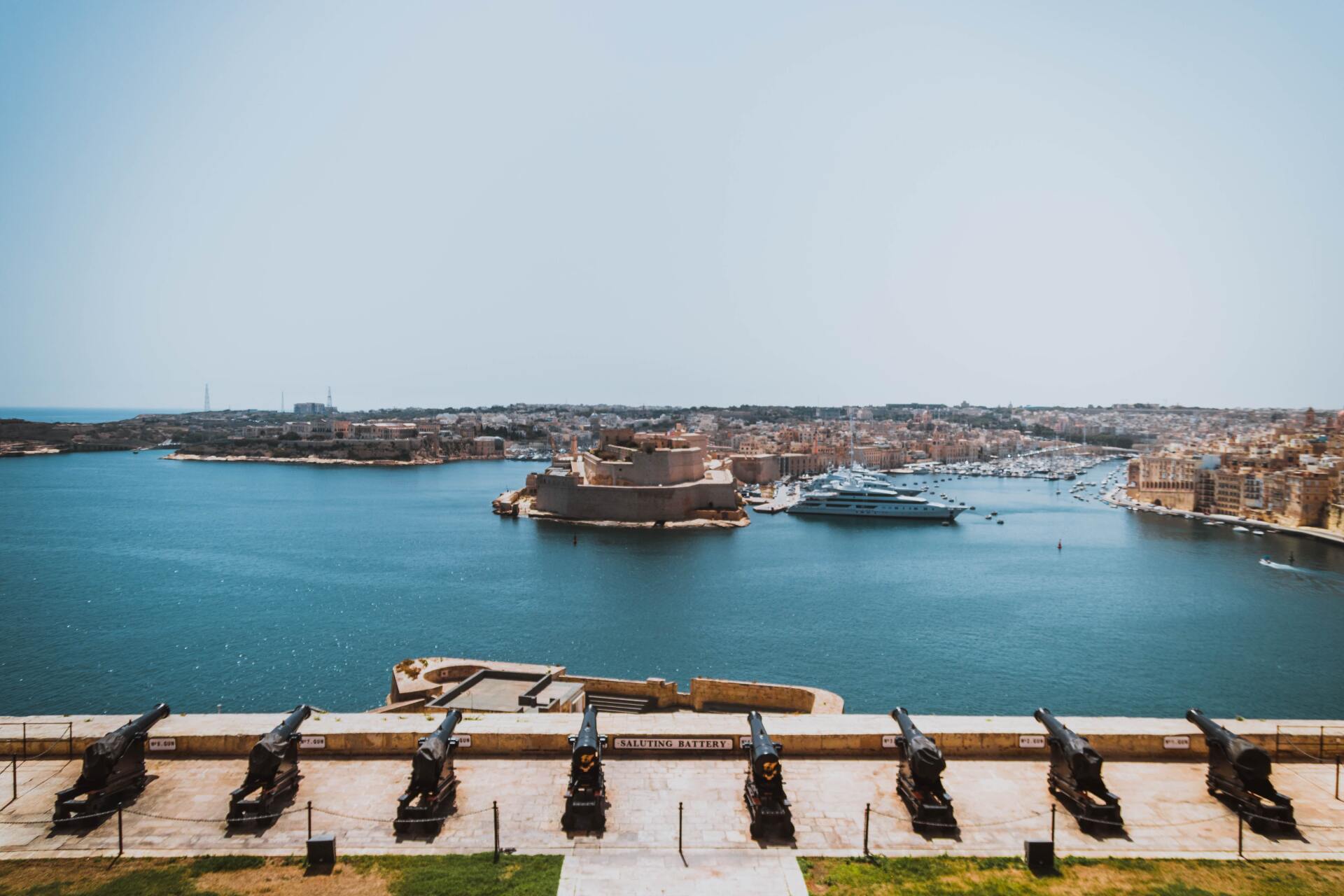Malta
Malta
Malta, a small archipelago nestled in the heart of the Mediterranean Sea, is a fusion of cultures shaped by millennia of history. Known for its stunning landscapes, rich history, and vibrant local culture, Malta has been a strategic prize for empires from the Phoenicians to the British, each leaving their mark on its language, architecture, and customs.
This sun-drenched island is renowned for its breathtaking natural beauty, from the crystal-clear blue waters of the Blue Lagoon to the rugged cliffs that line its coasts. Visitors are captivated by Malta's prehistoric temples, some of the oldest free-standing structures in the world, and the imposing walled city of Valletta, a UNESCO World Heritage site.
The Maltese archipelago, though compact, boasts an energetic cultural scene, reflecting a blend of North African, Italian, and British influences. Festivals and feasts, known locally as 'festas', brighten the streets with fireworks and processions throughout the year, celebrating the islands' patron saints and historical events.
Malta, a small archipelago nestled in the heart of the Mediterranean Sea, is a fusion of cultures shaped by millennia of history. Known for its stunning landscapes, rich history, and vibrant local culture, Malta has been a strategic prize for empires from the Phoenicians to the British, each leaving their mark on its language, architecture, and customs.
This sun-drenched island is renowned for its breathtaking natural beauty, from the crystal-clear blue waters of the Blue Lagoon to the rugged cliffs that line its coasts. Visitors are captivated by Malta's prehistoric temples, some of the oldest free-standing structures in the world, and the imposing walled city of Valletta, a UNESCO World Heritage site.
The Maltese archipelago, though compact, boasts an energetic cultural scene, reflecting a blend of North African, Italian, and British influences. Festivals and feasts, known locally as 'festas', brighten the streets with fireworks and processions throughout the year, celebrating the islands' patron saints and historical events.

Malta's strategic location in the Mediterranean has endowed it with a rich and diverse history, visible in its architecture and museums. The capital, Valletta, built by the Knights of St. John, is known as the 'Fortress City' and is packed with historical and cultural treasures, including St. John's Co-Cathedral and the Grand Master's Palace. Beyond Valletta, the ancient temples of Hagar Qim and Mnajdra offer insights into Malta’s prehistoric past, while the old capital of Mdina allows visitors to step back in time with its medieval and baroque architecture.
Despite its small size, Malta boasts a vibrant cultural life that is a draw for creatives and artists from around the world. The island’s numerous festivals showcase everything from local folk music and art to international film and contemporary theatre, creating a dynamic cultural calendar that is packed throughout the year.
Outdoor enthusiasts will find Malta surprisingly diverse, with opportunities for hiking, rock climbing, and water sports. The islands’ coastline features a series of natural harbors, bays, beaches, and the famous Blue Grotto—all offering great diving, snorkeling, and sailing conditions.
Malta enjoys a Mediterranean climate, characterized by hot, dry summers and mild, wet winters, making it an attractive destination year-round. Summer in Malta is sun-drenched and perfect for enjoying the island's beaches, with July and August being the peak months for heat and tourism.
Spring and autumn are ideal times to visit Malta. The weather is pleasantly warm and the islands are less crowded, offering a perfect setting for outdoor activities such as hiking and sightseeing. Spring also sees the countryside bloom with wildflowers, adding a splash of color to the rugged landscape.
Winter in Malta is mild compared to much of Europe, with temperatures rarely falling below 10°C. While rainfall is more frequent during these months, sunny days are still common, allowing for pleasant walks and outdoor activities. Occasional storms can occur, so visitors should check the weather forecast regularly and plan accordingly.
Currency: Euro(EUR)
Time Difference: GMT +1 hour (GMT +2 hours during Daylight Saving Time)
Estimated flight time: Approximately 3 hours
Visa: Malta is part of the Schengen Area. EU citizens can enter visa-free, non-EU citizens may require a visa.
Spoken Language: Maltese and English are both official languages
Tipping Culture: Tipping is customary but not obligatory. It's common to leave 5-10% of the bill in restaurants if service is not included.
Our Holiday Destinations
New paragraph
Malta
Explore the heart of the Mediterranean in Malta, an island known for its stunning landscapes, historical depth, and vibrant local culture. From diving into the blue waters of Comino to wandering the ancient streets of Valletta, Malta offers a unique blend of adventure, heritage, and leisure in a setting that's as warm and welcoming as its people.

